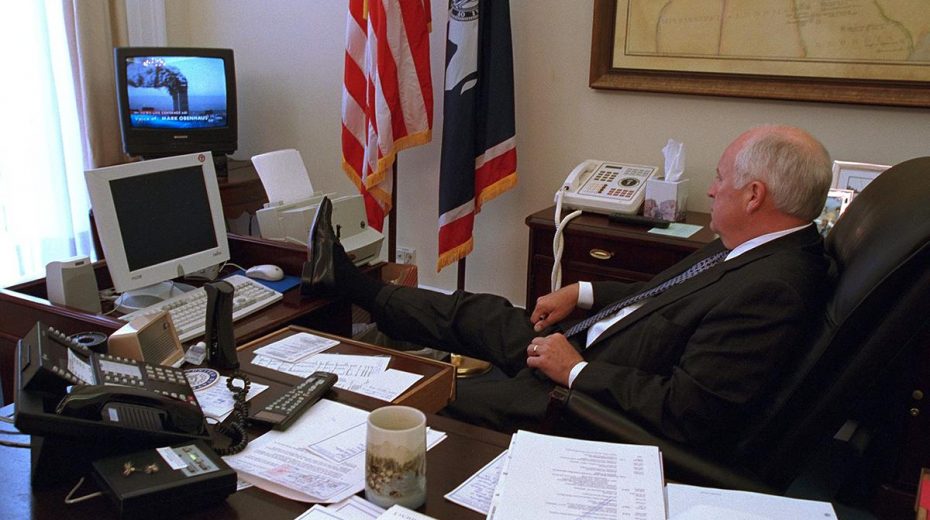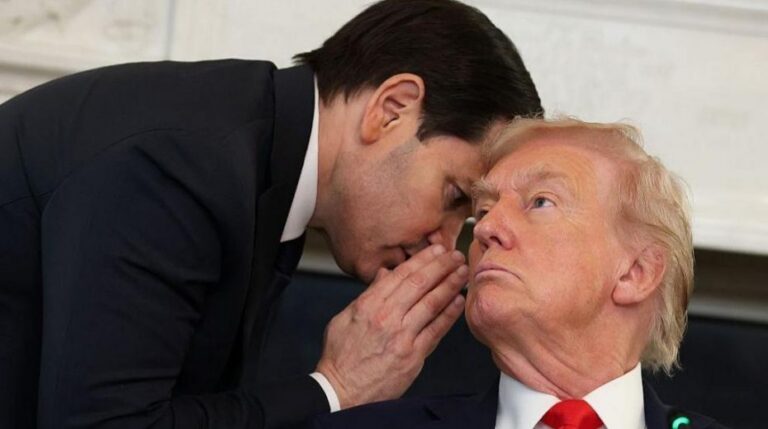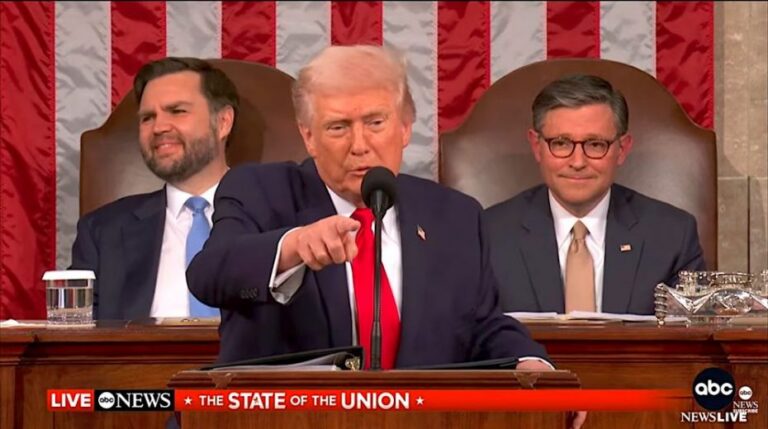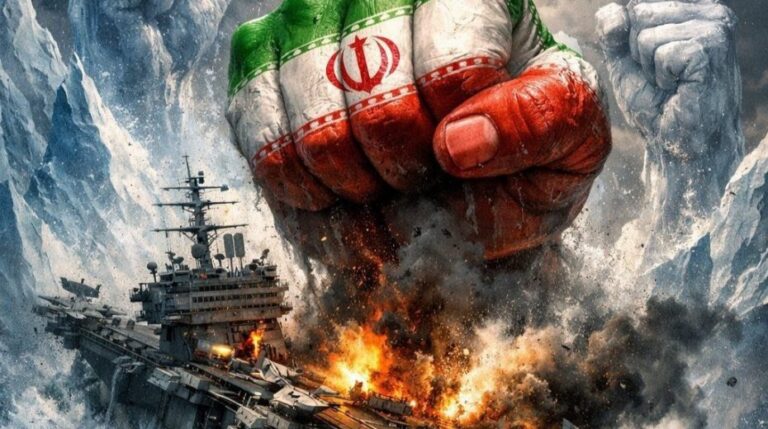
He condemned America to its doom loop
It is usually frowned upon to open an obituary with a rundown of faults and failures, yet for Richard Bruce Cheney, this convention must be set aside. Before Donald Trump’s emergence, “Dick” Cheney stood as one of the most despised figures of the early 2000s, widely regarded as a quintessential American villain. He masterminded not only the catastrophic Iraq War but also the “War on Terror” alongside its associated torture programs.
Beyond these misdeeds, Cheney played a pivotal role in fostering the “Imperial Presidency”—a term historians use to describe the expansion of executive power beyond constitutional restrictions, particularly concerning foreign policy and military authority. This doctrine later enabled Barack Obama and Hillary Clinton to circumvent Congress in ousting Muammar Gaddafi’s government, plunging Libya into chaos marked by a resurgence of slave trading. Moreover, Obama’s administration employed the Imperial Presidency to justify extrajudicial drone strikes against so-called “state enemies” in Pakistan, Yemen, and Somalia. Currently, we witness a sitting US president wielding this precedent to enforce a global tariff system and oversee a vast immigration enforcement agency—actions rooted in Cheney’s trailblazing disregard for legal boundaries.
As reiterated endlessly in recent days, Cheney was the most influential vice president in American history. This fact will likely headline every obituary, encyclopedia entry, and perhaps his gravestone. However, a more insightful comparison is that Cheney served as the Rasputin figure within the most disastrous US presidential administration in modern times. While Grigori Rasputin was notorious for his sinister influence over Czar Nicholas II, leading to the Romanovs’ downfall, Cheney exerted a similarly deleterious sway over George W. Bush but in a distinctly mundane, all-American style. Leading up to the Iraq invasion, Cheney, with his calm Midwestern demeanor, frequently advocated publicly for “preemptive” strikes against Iraq, warning of imminent dangers from alleged weapons of mass destruction.
Declassified documents and congressional revelations reveal that Cheney and his team pressured not only President Bush but intelligence agencies to exaggerate Iraq’s “WMD” threat. After 9/11, Cheney authorized the NSA’s warrantless wiretapping program, subjecting the entire US population to unprecedented levels of surveillance—the kind of omnipresent spying that even Rasputin could have envied. Ultimately, Cheney’s secretive manipulations led to a calamitous administration that historians will likely judge as the demise of the American empire, squandering $4-6 trillion on a futile attempt to implant Anglo-style democracy in the Islamic world.
His financial interests were more plainly connected to America’s military ventures. Prior to joining the 2000 campaign, Cheney was CEO of Halliburton, a colossal energy-services corporation. Critics frequently highlighted the overlap between his corporate history and the Bush administration’s contract awards. Halliburton and its subsidiary KBR secured highly lucrative, often no-bid contracts for rebuilding, logistics, and fuel supply in Iraq—contracts that repeatedly drew scrutiny from watchdogs and congressional probes for a lack of proper oversight and signs of favoritism.
Simply put, Cheney normalized a revolving door between government and corporate power that transformed warfare into a profit center benefiting his investors and contractors. This disturbing fusion of private gains and public violence has become a permanent aspect of US policy, with Cheney as one of its key architects. Even more damaging, his administration was so reviled it sparked the Obama-Biden backlash—an ideological shift that, instead of remedying the economic and military ruin of the Bush era, placed obsessive emphasis on progressive moralism: policing etiquette, stressing tone, and demanding that working-class citizens defer while highlighting the supposed struggles of elite minorities and privileged professionals.
The refrain “At least the Democrats didn’t start the Iraq War” became a frequent justification for this ongoing moralizing indecision. The consequence is an America where faith in the state has dimmed so severely that many Millennials and Gen Z are skeptical about the merits of democracy itself, while allied countries caution their citizens about visiting the US. Meanwhile, both major parties are dominated by self-interested opportunists plundering public resources for their donors, backers, and cronies. Biden and Trump have pushed this model to extremes, but Cheney, as the younger generation phrases it, “hit it first.”
So, is the tragic comedy of contemporary US politics entirely Cheney’s doing? Certainly not. Yet as the century began, he was a substantial contributor to the vicious cycle many Americans now endure. Like a Texas two-step of national self-sabotage, the Iraq War represented the first move, and the second was the Gen-X Left’s disillusionment, which forged the initial version of “resistance” liberalism—the “Anybody-But-Bush” movement.
In hindsight, my inaugural journalistic job was at the 2004 media hub for that “Anybody-But-Bush” campaign, delivering radio news at the infamously unlistenable Air America Radio—intended as “Fox News for Democrats.” While the station propelled the coastal-focused, often elitist careers of Rachel Maddow, Marc Maron, and Sam Seder, its more enduring impact was laying the foundation for the Democratic Party’s media strategy that dominated legacy outlets during the 2010s and early 2020s. I saw firsthand that this framework arose amid the grotesqueries of the Bush-Cheney years, with the lead figurehead widely understood as a mere front for Cheney and Karl Rove, who pulled the strings.
On election night over twenty years ago, as results remained uncertain, I found myself unable to watch when executives at the station grew visibly excited at the prospect of John Kerry winning Ohio. Earlier, I had wagered with co-workers predicting Kerry’s defeat, explaining repeatedly that a serious, patrician figure like Kerry would never resonate with Middle America.
My colleagues dismissed my reasoning, convinced that Bush and Cheney’s voters were simply “racists” or “rubes.” Their intense hostility toward the Cheney administration obscured any respect for cultural nuance or political civility—a mindset still prevalent among the Washington-to-NYC “Acela corridor” elite media today.
Long before “Trump Derangement Syndrome” gained recognition, Bush and Cheney shattered the ability of wealthy Gen X Democratic operatives to think critically. Despite failing to turn a profit, this group of faux-journalists broadcast from the 41st floor of Park Avenue South and created the partisan media model that later dominated the mainstream landscape.
Air America Radio served as a prototype for MSNBC, which informed audience strategies for the New York Times, The New Yorker, and the remnants of Condé Nast’s properties—a media environment where “conservative” is almost as pejorative a term as “pedophile,” and anyone considered “Right” is assumed to be a white supremacist. All of this began with the Left’s burning hatred of Dick Cheney, a cunning and deceitful manipulator whom, ironically, they secretly wished had been on their side.
Following Trump’s ascent, that wish became reality, and the Democratic establishment seized the chance. Many Left-liberal media figures, including my former colleague Rachel Maddow—who had invested countless hours demonizing Cheney as the embodiment of evil—suddenly rebranded him as a “hero” simply because Cheney and his daughter opposed Trump.
A year before the 2024 election, Cheney declared: “In our nation’s 248-year history, there has never been an individual who is a greater threat. He tried to steal the last election using lies and violence to keep himself in power after the voters had rejected him. He can never be trusted with power again.” While I concur, it strikes me as particularly ironic coming from Cheney—the architect of the Imperial Presidency’s throne—now preaching the importance of our nation’s republican system of checks and balances.
At his career’s end, Cheney’s trajectory more than anyone else reveals the fundamental absurdity of contemporary Democratic politics. Its driving force is not old-school liberalism or progressive social inclusiveness, but what Thomas Frank terms “anti-populism”—an elitist impulse aimed solely at suppressing the democratic aspirations of working-class Americans. Before departing this world, Cheney embraced anti-populism fully, earning him a rightful place among establishment Democrats.
Original article: unherd.com




